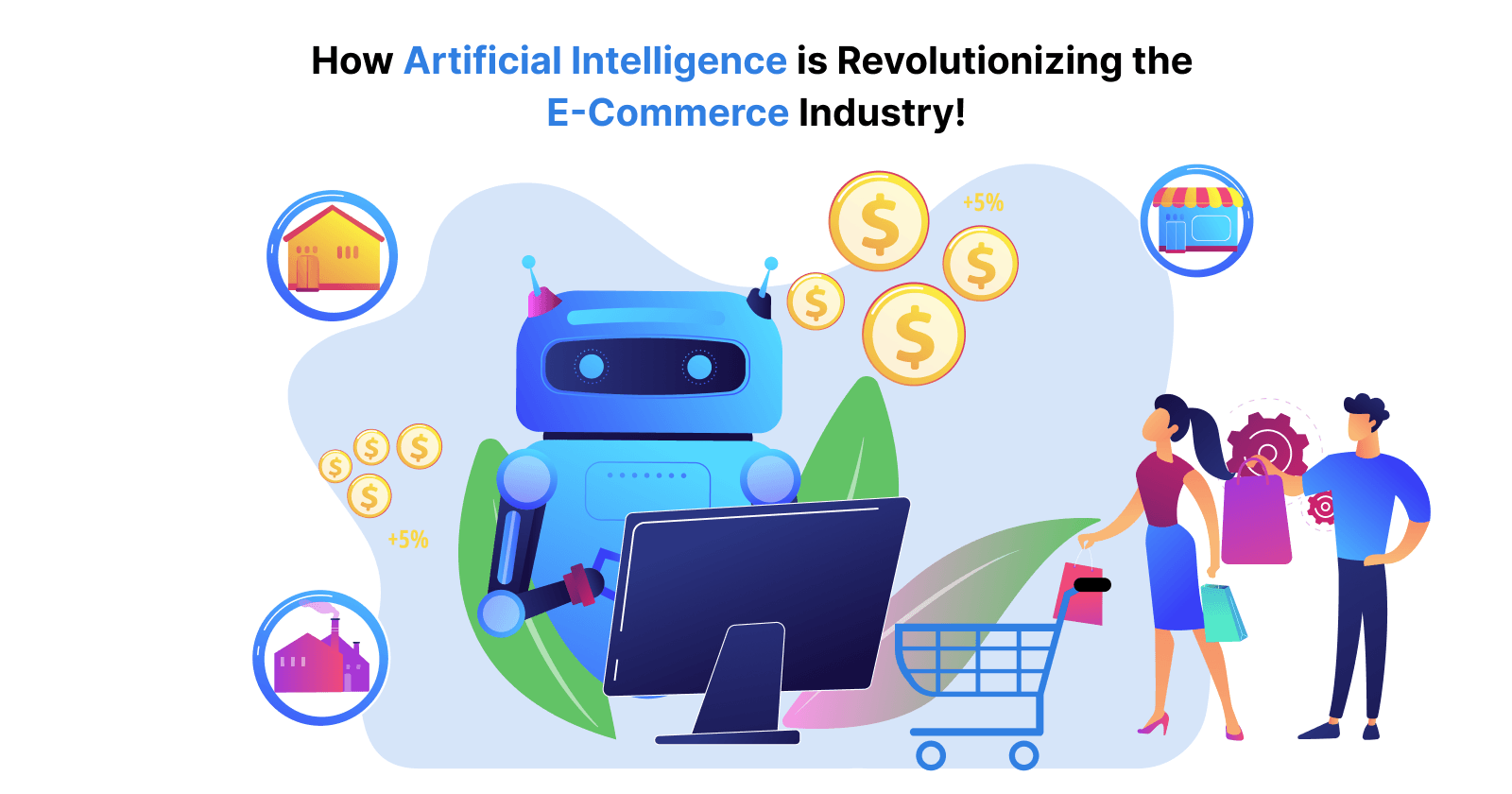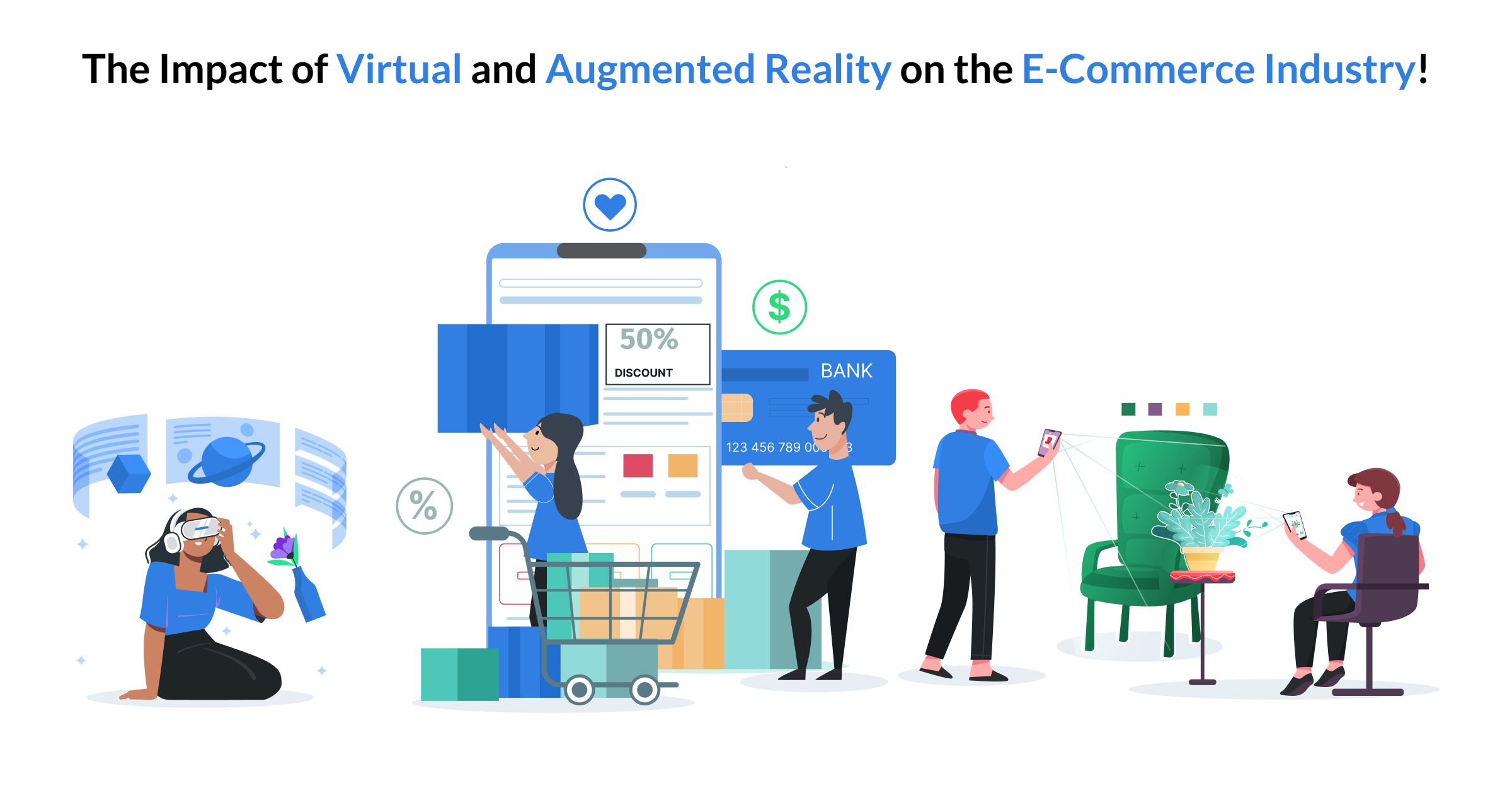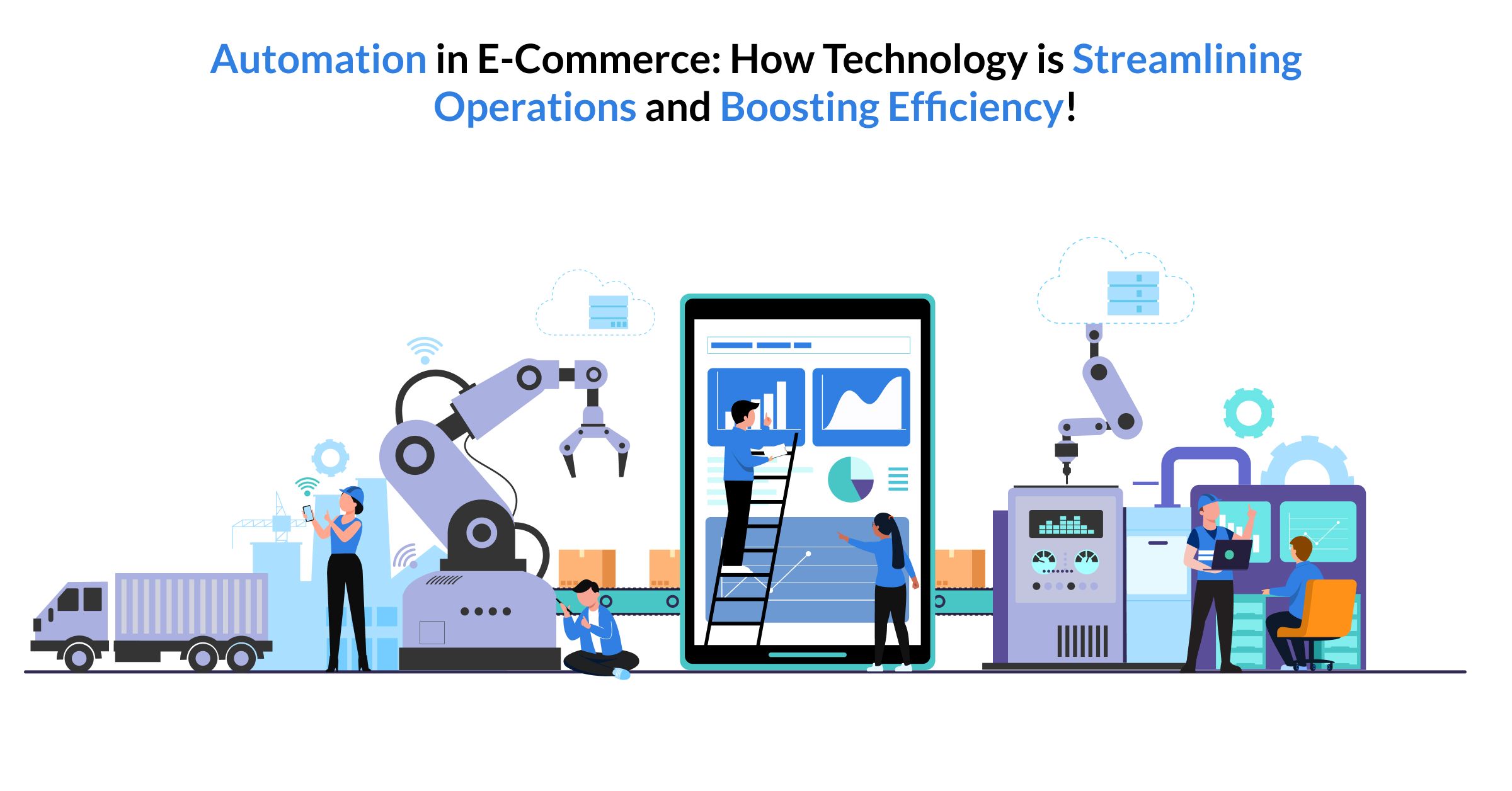Introduction
E-Commerce is growing at an unprecedented pace, offering consumers the convenience of shopping from anywhere, at any time. However, this rapid growth has also led to an increase in cybercrime.
E-Commerce is growing at an unprecedented pace, offering consumers the convenience of shopping from anywhere, at any time. However, this rapid growth has also led to an increase in cybercrime. Fraudsters are constantly finding new ways to steal sensitive consumer information such as credit card details, personal information, and other confidential data. Therefore, it's critical to have a robust e-commerce security system in place. In this blog, we will discuss the different ways technology is being used to prevent fraud and protect consumer data.
The Importance of E-Commerce Security
When it comes to e-commerce, security is critical. Consumers expect their data to be safe and secure when they make a purchase online. If an e-commerce website is not secure, consumers will likely hesitate to make a purchase or choose to shop elsewhere. This can result in lost revenue for businesses. Moreover, the cost of a data breach can be substantial.
According to a report by IBM, the average cost of a data breach in 2020 was $3.86 million. This amount includes not only the direct cost of the breach but also the indirect costs such as lost customers, decreased revenue, and damage to the company's reputation.
Ways Technology is Used to Prevent E-commerce Fraud
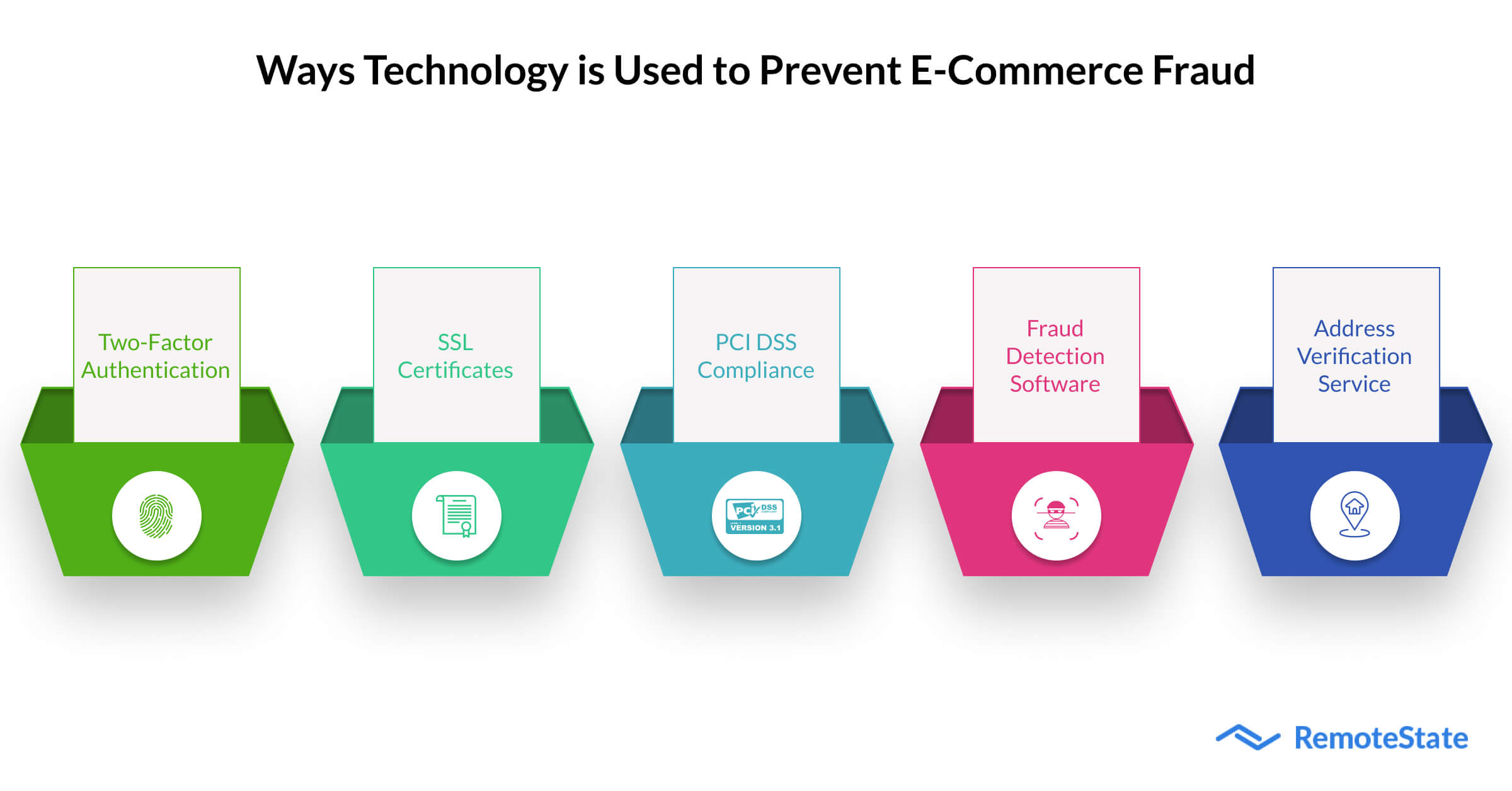
Two-Factor Authentication
Two-factor authentication is a security process in which a user must provide two forms of identification to access an account. The two forms of identification can be something the user knows, such as a password, and something they have, such as a mobile phone or token.
Two-factor authentication can prevent unauthorized access to a user's account, making it more difficult for fraudsters to steal sensitive information.
SSL Certificates
SSL (Secure Sockets Layer) is a protocol used to secure online transactions. When an SSL certificate is installed on a website, it encrypts the data transmitted between the website and the user's browser. This makes it more difficult for fraudsters to intercept the data and steal sensitive information.
PCI DSS Compliance
The Payment Card Industry Data Security Standard (PCI DSS) is a set of security standards designed to ensure that all companies that accept, process, store, or transmit credit card information maintain a secure environment.
PCI DSS compliance is mandatory for all e-commerce websites that accept credit card payments. By complying with the PCI DSS, e-commerce websites can ensure that they have a secure payment processing system in place.
Fraud Detection Software
Fraud detection software is designed to detect suspicious activity on an e-commerce website. The software uses algorithms to analyze user behavior and identify patterns that are indicative of fraudulent activity. This can help e-commerce websites to identify and prevent fraudulent transactions before they occur.
Address Verification Service
Address verification service (AVS) is a security measure used to verify the billing address provided by a user during a transaction. The AVS compares the billing address provided by the user with the address on file with the credit card issuer.
If the addresses don't match, the transaction may be flagged as suspicious, and the user may be asked to provide additional verification.
Ways Technology is Used to Protect Consumer Data
Encryption
Encryption is the process of converting data into a code that can only be deciphered with a key or password. By encrypting sensitive data, e-commerce websites can ensure that even if a data breach occurs, the data will be useless to fraudsters.
Tokenization
Tokenization is the process of replacing sensitive data with a unique identifier, known as a token. Tokens can be used in place of sensitive data, such as credit card details, during transactions. This reduces the risk of data breaches because the sensitive data is not stored on the e-commerce website.
Data Masking
Data masking is the process of hiding sensitive data by replacing it with dummy data. For example, instead of showing the user's full credit card number, only the last four digits may be displayed. This helps to protect sensitive information from being visible to unauthorized users.
Firewalls
A firewall is a security system that monitors and controls incoming and outgoing network traffic. By using firewalls, e-commerce websites can block unauthorized access to their network, reducing the risk of data breaches.
Regular Security Audits
Regular security audits are essential to ensure that an e-commerce website's security measures are effective. Security audits involve reviewing the website's security protocols, identifying potential vulnerabilities, and taking steps to address them.
The Importance of E-Commerce Security for Businesses and Consumers
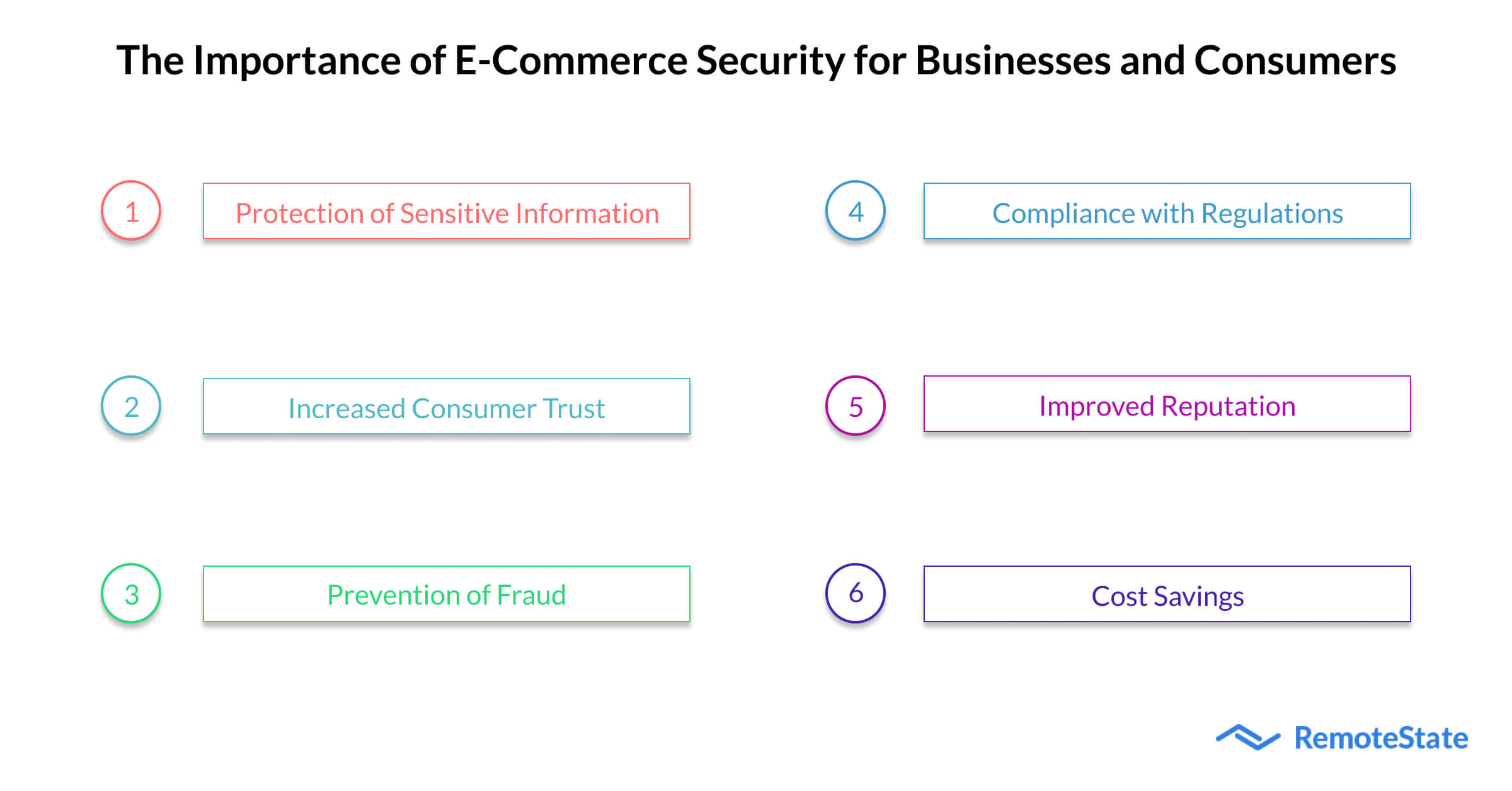
Protection of Sensitive Information
The primary benefit of e-commerce security is the protection of sensitive information, such as credit card details, personal information, and login credentials.
With proper security measures in place, businesses can ensure that this information is kept safe from cyberattacks and data breaches.
Increased Consumer Trust
E-commerce security helps to build consumer trust by demonstrating that businesses take the security of their customers' data seriously. This trust can lead to increased sales, customer loyalty, and positive reviews and recommendations.
Prevention of Fraud
E-commerce security measures such as fraud detection software and address verification services help to prevent fraudulent transactions. This reduces the risk of chargebacks and other financial losses associated with the fraud.
Compliance with Regulations
Many countries have regulations in place to protect consumer data, such as the General Data Protection Regulation (GDPR) in the European Union. E-commerce businesses that prioritize security can ensure that they comply with these regulations and avoid potential legal and financial penalties.
Improved Reputation
Data breaches and other security incidents can significantly damage a business's reputation. By prioritizing e-commerce security, businesses can avoid these incidents and maintain a positive reputation among their customers and the wider public.
Cost Savings
The costs associated with data breaches can be significant, including lost revenue, legal fees, and damage to reputation. By investing in e-commerce security measures, businesses can save money in the long run by reducing the risk of these incidents.
Conclusion
E-Commerce security is crucial to protect consumer data and prevent fraud. Technology is being used in various ways to ensure the security of e-commerce transactions, including two-factor authentication, SSL certificates, PCI DSS compliance, fraud detection software, address verification services, encryption, tokenization, data masking, firewalls, and regular security audits.
As e-commerce continues to grow, businesses must prioritize security to maintain consumer trust and avoid the significant costs associated with data breaches.
Enhance Your E-Commerce Security with Remotestate
Remotestate can help businesses improve their e-commerce security by providing expert consultation, development, and implementation of security measures.
Remotestate's team of experienced developers and IT professionals can conduct thorough security audits of e-commerce websites to identify potential vulnerabilities and recommend appropriate security measures.
They can also help businesses implement two-factor authentication, SSL certificates, PCI DSS compliance, fraud detection software, address verification services, encryption, tokenization, data masking, and firewalls.
With Remotestate's help, businesses can prioritize e-commerce security and protect their customers' sensitive information from cyberattacks and data breaches.
By partnering with a trusted IT services company like Remotestate, businesses can focus on their core operations while leaving the security of their e-commerce platforms in expert hands.
FAQ's
Why is e-commerce security important?
E-commerce security is essential because it protects consumer data and prevents fraud. Without adequate security measures in place, e-commerce websites are vulnerable to cyberattacks, which can result in significant financial losses and damage to their reputation.
What are some of the most common e-commerce security threats?
Some of the most common e-commerce security threats include phishing attacks, malware, SQL injection attacks, and man-in-the-middle attacks.
How can e-commerce businesses ensure that their security measures are effective?
E-commerce businesses can ensure that their security measures are effective by regularly reviewing their security protocols, conducting security audits, and staying up-to-date with the latest security technologies and trends.
What are some of the consequences of a data breach for an e-commerce business?
The consequences of a data breach for an e-commerce business can be significant, including lost revenue, damage to reputation, decreased customer trust, and legal and regulatory penalties.
What role do consumers play in e-commerce security?
Consumers play a vital role in e-commerce security by practicing good security habits, such as using strong passwords, avoiding public Wi-Fi when making online purchases, and checking their credit card statements regularly for unauthorized charges.
Publication Date
2023-03-17
Category
E-Commerce
Author Name
Rahul Agrawal
